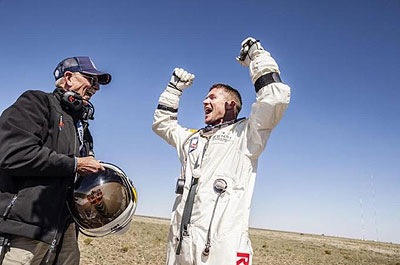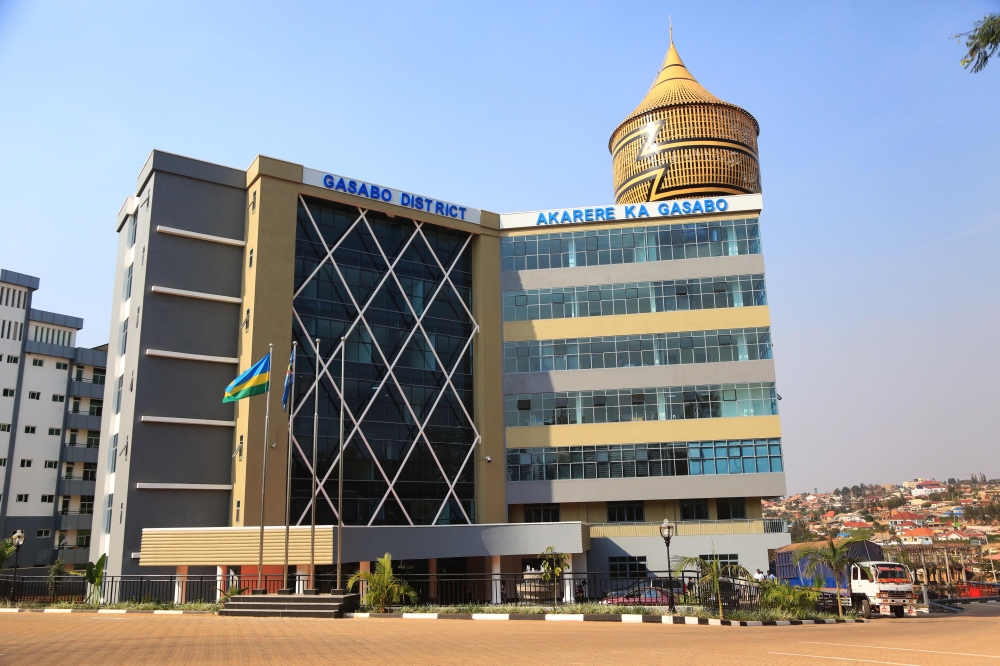Felix Baumgartner, an Austrian extreme athlete, has landed on Earth after a jump from the stratosphere in what is the world’s first supersonic skydive.


Felix Baumgartner, an Austrian extreme athlete, has landed on Earth after a jump from the stratosphere in what is the world’s first supersonic skydive.Baumgartner landed in the New Mexico desert in the US minutes after jumping from around 128,000ft, or 38.6km, on Sunday.He lifted his arms in victory shortly after landing.He took off in a pressurised capsule carried by a 55-storey ultra-thin helium balloon. He jumped from more than three times the height of the average cruising altitude for jetliners.Baumgartner had been expected to hit a speed of 1,110km per hour (kph) before activating his parachute about 5,000ft above the ground in southeastern New Mexico. He aimed to set four world records, including jumping from the capsule to become the first person to break the speed of sound in a skydiving free fall.Earlier, cheers broke out as the craft took flight at 9:30am local time (15:30 GMT) on Sunday from New Mexico.The enormous balloon rose, then pulled into the air a capsule containing Baumgartner.His mother wept as she watched the launch, which had been scrapped several times during the previous week by high winds.The 30 million-cubic-foot plastic balloon, is about one-tenth the thickness of a Ziploc bag, or roughly as thin as a dry cleaner bag.Baumgartner aimed to break a 52-year-old high altitude parachute jump record held by project adviser Joe Kittinger.In 1960, Kittinger, now a retired US Air Force colonel, jumped from a balloon flying at 31,333 metres and fell for four minutes and 36 seconds before opening his parachute.There is so little air in the upper reaches of the atmosphere that after about 30 seconds of free fall, Baumgartner should be moving faster than the speed of sound, which is roughly 1,110kph at that altitude. Among the risks Baumgartner faced was the chance that his supersonic body would trigger shock waves that could collide with the force of an explosion.But Baumgartner’s medical team did not believe this situation wass very likely because the air in the stratosphere would be too thin to carry the waves.No human has broken the sound barrier during free fall, at least not intentionally.






